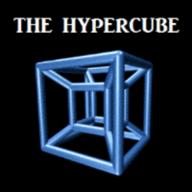MQ48 --- Exponential Equation
2012-10-02 4:56 am
MQ48 --- Exponential Equation Difficulty: 60%Solve 1 + 2ˣ + 2²ˣ⁺¹ = y² which x, y ∈ℤ.
回答 (3)
2012-10-03 5:10 am
✔ 最佳答案
1 + 2ˣ + 2²ˣ⁺¹ = y²0 < 2ˣ + 2²ˣ⁺¹ = y² - 1
∴ 2ˣ + 2²ˣ⁺¹ ≥ 2² - 1 = 3
x ≥ 0 since 2ˣ + 2²ˣ⁺¹ < 3 for x ≤ - 1.
If x = 0 ,
1 + 2⁰+ 2 = y²
4 = y²
y = ± 2We have a solution (x , y) = (0 , ±2).
If x ≥ 1 , without loss of generality , let y is positive , 2ˣ + 2²ˣ⁺¹ = y² - 1
⇔
2ˣ (1 + 2ˣ⁺¹) = (y - 1) (y + 1) ..... (*) y - 1 and y + 1 must be two positive consecutive even numbers ,
either y - 1 or y + 1 cann't be divisible by 4 but another one can , then
(y - 1) (y + 1) must be a multiple of 8 and hence x ≥ 3.
We conclude that
y - 1 (or y + 1) = 2m and y + 1 (or y - 1) = 2ˣ⁻¹ n ,
(m , n are positive ODD numbers)
All in all ,
y = 2ˣ⁻¹ n ± 1 , substitute into 2ˣ + 2²ˣ⁺¹ = y² - 1 :
2ˣ (1 + 2ˣ⁺¹) = (2ˣ⁻¹ n ± 1)² - 1
2ˣ (1 + 2ˣ⁺¹) = 2²ˣ⁻² n² ± 2ˣ n
1 + 2ˣ⁺¹ = 2ˣ⁻² n² ± n
1 ± n = 2ˣ⁻² (n² - 8)
When 1 - n = 2ˣ⁻² (n² - 8) ,
2ˣ⁻² (n² - 8) ≤ 0 for n is a positive integer.
⇒
n² - 8 ≤ 0
i.e. n = 1 for n is a positive ODD number.
But L.H.S. = 1 - 1 = 0 ≠ 2ˣ⁻² (1² - 8) = R.H.S. (Contradiction)
Hence n ≠ 1.
Therefore it must be
1 + n = 2ˣ⁻² (n² - 8) ≥ 2(n² - 8) for x ≥ 3 ,
⇒
2n² - n - 17 ≤ 0
2(n² - 2(1/4)n + 1/16 - 17/2 - 1/16) ≤ 0
(n - 1/4)² - 137/16 ≤ 0
(n - 1/4 - √137/4) (n - 1/4 + √137/4) ≤ 0
(n - 3.176...) (n + 2.676...) ≤ 0
- 2.676... ≤ n ≤ 3.176...
n = 3 for n is a positive ODD number ≠ 1 .
Thus ,
1 + 3 = 2ˣ⁻² (3² - 8)
x = 4 , and hence y = ± 23.∴ (x , y) = (0 , ±2) or (4 , ±23).
2012-10-03 4:09 pm
You are right, I should consider such case. Thanks for your comment.
2012-10-02 7:30 pm
x=0 y=2 or -2
步驟5識-.-
步驟5識-.-
收錄日期: 2021-04-13 19:00:57
原文連結 [永久失效]:
https://hk.answers.yahoo.com/question/index?qid=20121001000051KK00606


